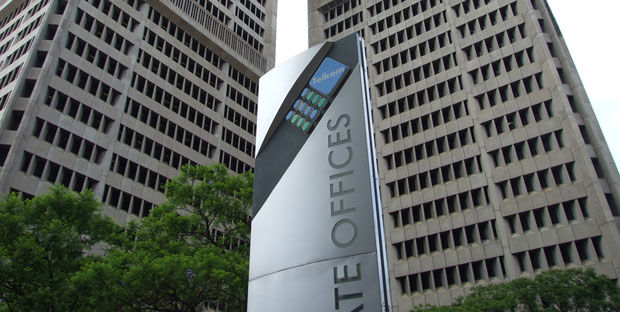
Telkom has accused the former MD of its international business unit, Thami Msimango, and well-known businessman Mthunzi Mdwaba of violating South Africa’s anticorruption laws over an agreement involving former subsidiary Multi-Links and JSE-listed Blue Label Telecoms.
The allegations are contained in a lawsuit filed at the high court in Pretoria in which Telkom is claiming more than US$500m in damages from Blue Label in relation to a “super dealer agreement” signed between Telkom’s former Nigerian subsidiary, Multi-Links, and Blue Label subsidiary Africa Prepaid Services (APS). Telkom is also claiming $6m in damages from Msimango personally.
Msimango was CEO of Multi-Links between February 2009 and February 2010. He is no longer employed by Telkom or Multi-Links.
According to the court papers, which TechCentral retrieved from the courthouse, Mdwaba and Blue Label conspired to work with Msimango and possibly other senior Telkom and Multi-Links employees, to ensure the agreement between Multi-Links and Blue Label was to the “substantial commercial disadvantage of Telkom”.
Telkom alleges that the conduct of Mdwaba, Msimango and Blue Label constitutes an offence under section three of the Prevention and Combating of Corrupt Activities Act in that Blue Label gave a 49% shareholding in APS Nigeria and a “commission” of $2m to Mdwaba, or his company Citadella, in order to influence Msimango and possibly other senior officials at Telkom and Multi-Links.
The company also names Blue Label Telecoms chief operating officer Mark Pamensky as being complicit in efforts to skew the agreement between APS and Multi-Links in Blue Label’s favour and to Telkom’s disadvantage.
Blue Label has said it won’t comment further as the matter is sub judice. It has said it is confident it will defend the matter successfully. Msimango’s mobile phone was switched off when TechCentral attempted to reach him for comment on Tuesday, while Mdwaba could also not be reached on his mobile phone.
In the court papers, Telkom says that if it had not been for the negotiations with Blue Label and APS, the company would have pulled out of the Nigerian market in December 2008, cutting its losses. It acquired 75% of Multi-Links in March 2007 for $280m and bought the remaining 25% for $130m two years later. In total, it pumped more than R10bn into the company.
Msimango entered into discussions with Blue Label in July 2008, with the super dealer agreement — a 10-year contract with no option for early termination — being signed five months later. According to Telkom, the deal was considered to be essential to turn around Multi-Links, a “necessary precondition for further loan investment”.
According to Telkom, the circumstances under which the deal agreement was negotiated “imposed a duty of care on the Blue Label side” but it failed to do this, suggesting it didn’t disclose that 49% of the equity of APS Nigeria would be held by Mdwaba or a nominee of his. Mdwaba nominated his company, Citadella, to hold the stake. As a consequence of Citadella’s shareholding in APS Nigeria, Blue Label would only hold an effective 36,72% share.
Telkom says that prior to the conclusion of the dealer agreement, Blue Label, represented by Pamensky and Mdwaba, agreed that Mdwaba and/or Citadella would “facilitate the conclusion of a distribution agreement between Multi-Links and APS on terms favourable to the Blue Label side, would receive 49% of the shareholding in APS Nigeria and a $2m ‘commission’ [or] alternatively a ‘reasonable commission’ later determined to be $2m in the event that a distribution agreement was concluded between Multi-Links and APS on terms favourable to the Blue Label side”.
The resultant agreement was a “one-sided, unbusinesslike agreement which would ensure substantial revenue to APS Nigeria without holding APS Nigeria accountable to perform in the best interest of Multi-Links”.
In addition, the incentives offered by Blue Label to Mdwaba were “excessively disproportionate to a reasonable and bona fide commission or incentive made payable to an honest broker for facilitation of the conclusion of the agreement”.
According to Telkom, Mdwaba “unfairly took advantage” of his personal influence over senior Telkom and Multi-Links employees, whose identities, apart from Msimango, are unknown to the company. In addition, Mdwaba “manipulated and subverted the transparent negotiation process” and “surreptitiously influenced such employees in breach of their fiduciary duties to their employers unfairly to manipulate the super dealer agreement negotiations”.
The super dealer agreement included provisions for payments to APS Nigeria by Multi-Links of about 30% of Multi-Link’s gross revenues and of “marketing moneys” of $2m/annum, escalating on an annual basis, the first instalment of which was payable upfront before the agreement was implemented. — (c) 2013 NewsCentral Media




